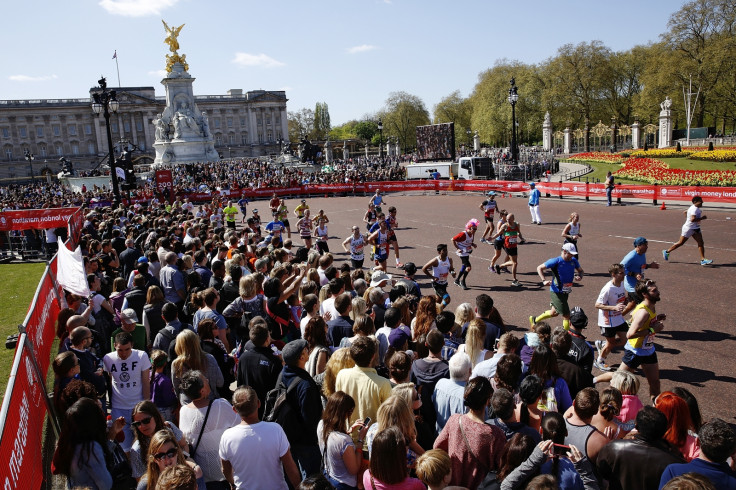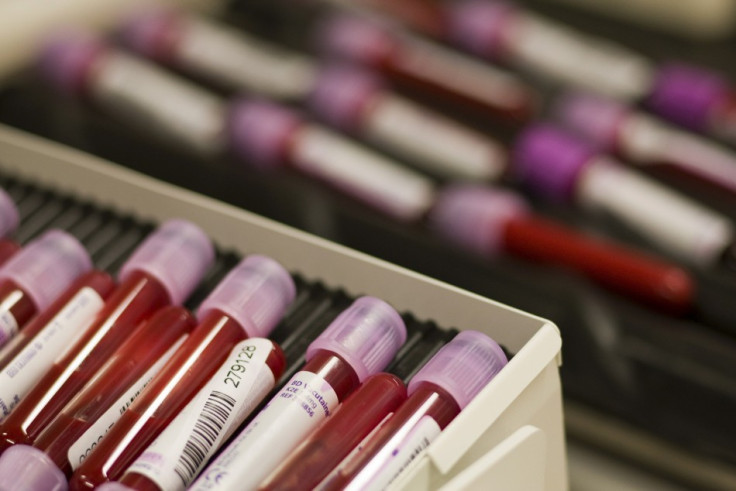London Marathon results called into question by IAAF leak

The London Marathon is in the spotlight after the Sunday Times newspaper alleged the event was won seven times in 12 years by athletes who have recorded suspicious blood scores.
The tally represents nearly 30% of winners in the 24 men's and women's races between 2001 and 2012.
The fresh allegations arise from a leaked cache of data, including the results of 12,000 blood tests from 5,000 athletes, from the International Association of Athletics Federations (IAAF).
They highlight "the alarming extent of suspected cheating" by elite athletes in the six biggest public marathon events held around the world – London, Boston, Chicago, New York, Berlin and Tokyo – the Times said on 9 August.
One in four winners of those city marathons - 34 in total - recorded blood scores that suggested they may have doped to boost their performance.
'Irresponsible allegations'
Last week, the Times and German broadcaster ARD alleged more than 800 athletes competing at major events recorded dubious blood tests between 2001 and 2012.
A third of medals in endurance events at the Olympics and World Championships, including 55 golds, were won by athletes with suspicious blood scores.
The findings revealed "the extraordinary extent of cheating by athletes at the world's most prestigious events," the paper said at the time.

On 7 August, the World Anti-Doping Agency (Wada) said it would urgently launch an investigation into the damning allegations, but decried the manner in which confidential blood test results were leaked to the media.
A portion of the data within the database pre-dates the Athlete Biological Passport, which was introduced in 2009. This data could not possibly be considered doping, legally or otherwise.
"Wada is committed to protecting the confidentiality of athletes; and, therefore, has asked its independent commission to commence its investigation with urgency," Wada president Sir Craig Reedie said in a statement.
"We are confident that the IAAF, which has formally agreed to full co-operation with the commission with respect to its inquiries, is equally committed.
"Wada deplores the manner in which this data was obtained, leaked to the media and analysed," Reedie continued.
"To suggest or imply doping with respect to any athlete whose data is contained within the database is, at the very least, irresponsible and potentially libellous."
"I ask that any athlete, or anti-doping organisation, concerned that their rights are being eroded or inappropriately challenged refer those concerns to the commission, which intends to commence its work immediately."
Biological passport
Wada director general David Howman warned against drawing hasty conclusions from the blood data, saying the results had to be carefully placed in context.
"A portion of the data within the database pre-dates the Athlete Biological Passport (ABP), which was introduced in 2009. This data could not possibly be considered doping, legally or otherwise," he said.
"In addition, atypical blood data, which may be within this database from 2009-2012, is not necessarily indicative of doping.
"The strength of the ABP is that it monitors selected biological variables over time, via the blood, which indirectly reveal the effects of doping.
"Wada's rules governing the ABP are designed to ensure a complete and fair review of ABP profiles and require the unanimous opinion of three experts."
© Copyright IBTimes 2025. All rights reserved.





















